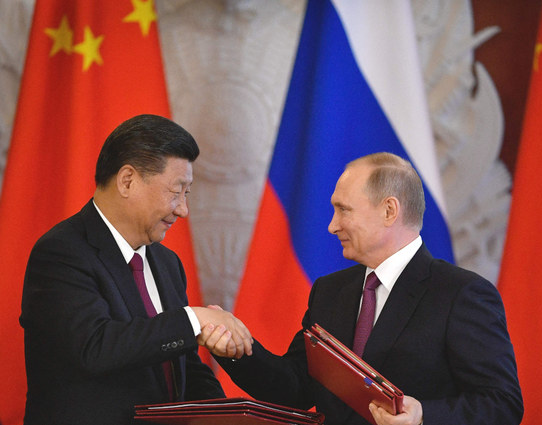Mr. President, a year ago, I shared with my colleagues concerns I had about the trajectory of democracy in Hungary. Unfortunately, since then Hungary has moved ever farther away from a broad range of norms relating to democracy and the rule of law.
On June 6, David Kramer, the President of Freedom House who served as Assistant Secretary of State for Democracy, Human Rights and Labor for President George W. Bush, summed up the situation. Releasing Freedom House’s latest edition of Nations in Transit Kramer said: “Hungarian Prime Minister Viktor Orbán and Ukrainian president Viktor Yanukovych, under the pretext of so-called reforms, have been systematically breaking down critical checks and balances. They appear to be pursuing the `Putinization’ of their countries.”
The report further elaborates, “Hungary’s precipitous descent is the most glaring example among the newer European Union (EU) members. Its deterioration over the past five years has affected institutions that form the bedrock of democratically accountable systems, including independent courts and media. Hungary’s negative trajectory predated the current government of Prime Minister Viktor Orbán, but his drive to concentrate power over the past two years has forcefully propelled the trend.”
Perhaps the most authoritative voice regarding this phenomenon is the Prime Minister himself. In a February 2010 speech, Viktor Orbán criticized a system of governance based on pluralism and called instead for: “a large centralized political field of power . . . designed for permanently governing.” In June of last year, he defended his plan to cement economic policy in so-called cardinal laws, which require a two-thirds vote in parliament to change, by saying, “It is no secret that in this respect I am tying the hands of the next government, and not only the next one but the following ten.”
Checks and balances have been eroded and power has been concentrated in the hands of officials whose extended terms of office will allow them to long outlive this government and the next. These include the public prosecutor, head of the state audit office, head of the national judicial office, and head of the media board. Those who have expressed concerns about these developments have good reason to be alarmed.
I am particularly concerned about the independence of the judiciary which, it was reported this week, will be the subject of infringement proceedings launched by the European Commission, and Hungary’s new media law. Although there have been some cosmetic tweaks to the media law, the OSCE Representative on Freedom of the Media has argued that it remains highly problematic. Indeed, one expert has predicted that the most likely outcome of the new law will be to squeeze out reporting on corruption.
Hungary also adopted a new law on religion last year that had the stunning effect of stripping hundreds of religions of their legal recognition en masse. Of the 366 faiths which previously had legal status in Hungary, only 14 were initially granted recognition under the new law. Remarkably, the power to decide what is or is not a religion is vested entirely and exclusively in the hands of the legislature, making it a singularly politicized and arbitrary process. Of 84 churches that subsequently attempted to regain legal recognition, 66 were rejected without any explanation or legal rationale at all. The notion that the new framework should be acceptable because the faiths of most Hungarian citizens are recognized is poor comfort for the minority who find themselves the victims of this discriminatory process. This law also stands as a negative example for many countries around the world just now beginning tenuous movement towards democracy and human rights.
Finally, a year ago, I warned that “[i]f one side of the nationalism coin is an excessive fixation on Hungarian ethnic identity beyond the borders, the other side is intolerance toward minorities at home.”I am especially concerned by an escalation of anti-Semitic acts which I believe have grown directly from the government’s own role in seeking to revise Hungary’s past.
Propaganda against the 1920 Treaty of Trianon, which defines the current borders of Hungary, has manifested itself in several ways. Most concretely, the Hungarian government extended citizenship on the basis of ethnic or blood identity–something the government of Viktor Orbán promised the Council of Europe in 2001 that it would not do and which failed to win popular support in a 2004 referendum. Second, the government extended voting rights to these new ethnic citizens in countries including Romania, Serbia, Slovakia and Ukraine. This has combined with a rhetorical and symbolic fixation on “lost” Hungarian territories–apparently the rationale for displaying an 1848 map of Greater Hungary during Hungary’s EU presidency last year. In this way, the government is effectively advancing central elements of the agenda of the extremist, anti-Semitic, anti-Roma Jobbik party. Moreover, implicitly–but unmistakably–it is sending the message that Hungary is no longer a civic state where political rights such as voting derive from citizenship, but where citizenship derives from one’s ethnic status or blood identity.
The most recent manifestation of this revisionism includes efforts to rehabilitate convicted war criminal Albert Wass and the bizarre spectacle of the Hungarian government’s role in a ceremony in neighboring Romania–over the objections of that country–honoring fascist writer and ideologue Joszef Nyiro. That event effectively saw the Speaker of the Hungarian Parliament, Laszlo Kover; the Hungarian State Secretary for Culture, Geza Szocs; and Gabor Vona, the leader of Hungary’s most notoriously extremist party, Jobbik, united in honoring Nyrio. Several municipalities have now seen fit to erect statues honoring Miklos Horthy, Hungary’s wartime leader, and the writings of Wass and Nyiro have been elevated onto the national curriculum.
It is not surprising that this climate of intolerance and revisionism has gone hand-in-hand with an outbreak of intolerance, such as the anti-Semitic verbal assaults on a 90-year old Rabbi and on a journalist, an attack on a synagogue menorah in Nagykanizsa, the vandalism of a Jewish memorial in Budapest and monuments honoring Raoul Wallenberg, the Blood Libel screed by a Jobbik MP just before Passover, and the recent revelation that a Jobbik MP requested–and received–a certificate from a genetic diagnostic company attesting that the MP did not have Jewish or Romani ancestry.
We are frequently told that Fidesz is the party best positioned in Hungary to guard against the extremism of Jobbik. At the moment, there seems to be little evidence to support that claim. The campaign to rehabilitate fascist ideologues and leaders from World War II is dangerous and must stop. Ultimately, democracy and the rights of minorities will stand or fall together.
Hungary is not just on the wrong track, it is heading down a dangerous road. The rehabilitation of disgraced World War II figures and the exaltation of blood and nation reek of a different era, which the community of democracies–especially Europe–had hoped was gone for good. Today’s Hungary demonstrates that the battle against the worst human instincts is never fully won but must be fought in every generation.









